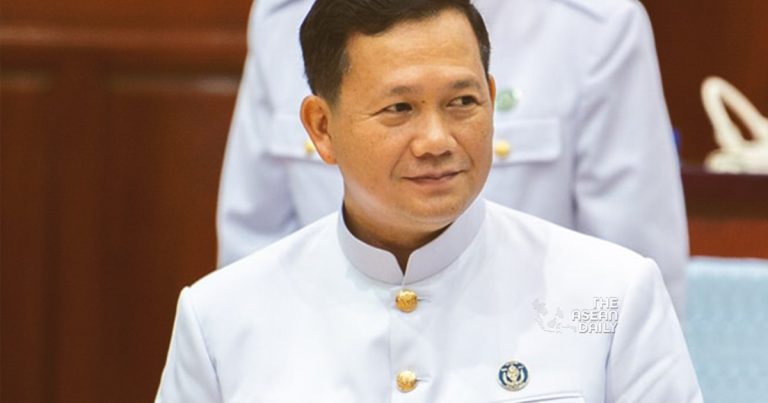22-8-2023 (PHNOM PENH) In a historic move, Cambodia’s parliament, on Tuesday, elected Hun Sen’s eldest son as the country’s new prime minister, solidifying a dynastic transition of power following last month’s one-sided election.
Heng Samrin, the parliamentarian presiding over the session, formally announced the unanimous election of Hun Manet.
July’s polls saw Hun Sen’s Cambodian People’s Party (CPP) triumph, securing all but five seats in the lower house. However, these elections were widely criticized as a sham since the primary opposition party had been disqualified from participating.
After the landslide victory, Hun Sen, one of the world’s longest-serving leaders, made the surprising announcement that he would be stepping down, ending nearly four decades of unyielding leadership and transferring power to his son, Hun Manet.
On Monday, the Cambodian king, who plays a mostly symbolic role, convened parliament, setting the stage for the lawmakers to officially elect Hun Manet, a four-star general aged 45, as the new leader of the nation on Tuesday.
Hun Manet’s incoming government includes several of his close relatives and children of prominent figures within Hun Sen’s circle. Hun Sen’s youngest son, Hun Many, will assume the role of civil service minister, while his nephew, Neth Savoeun, the current national police chief, will become a deputy prime minister. According to a draft list of new cabinet members seen by AFP, the sons of the current interior and defence ministers will also be taking over their fathers’ positions.
Hun Sen, who ascended to power in 1985, is credited with modernizing a nation that had been ravaged by civil war and genocide. However, his rule has been marred by allegations of environmental degradation, deep-seated corruption, and the systematic elimination of virtually all political opponents.
The United States, the United Nations, and the European Union had condemned the elections held last month, deeming them neither free nor fair.
Hun Sen vehemently rejected these allegations, asserting that the dynastic succession, which some critics likened to North Korea, was being undertaken to preserve peace and prevent “bloodshed” in the event of his passing while in office. He also cautioned that he would return as prime minister if Hun Manet’s life were gravely threatened.
Despite his education in Britain and the United States, Hun Manet has shown few indications of deviating from his father’s conservative path. As a member of the ruling party’s influential permanent committee, he has held the position of commander of the Royal Cambodian Army since 2018. Additionally, Hun Manet has engaged with several world leaders, including China’s President Xi Jinping, Cambodia’s primary ally and benefactor.
Sebastian Strangio, the author of “Hun Sen’s Cambodia,” noted that little is known about how Hun Manet intends to govern. “His public statements have offered a vague blend of management jargon and commitments to uphold his father’s legacy, making it extremely challenging to discern any distinct national vision,” Strangio




